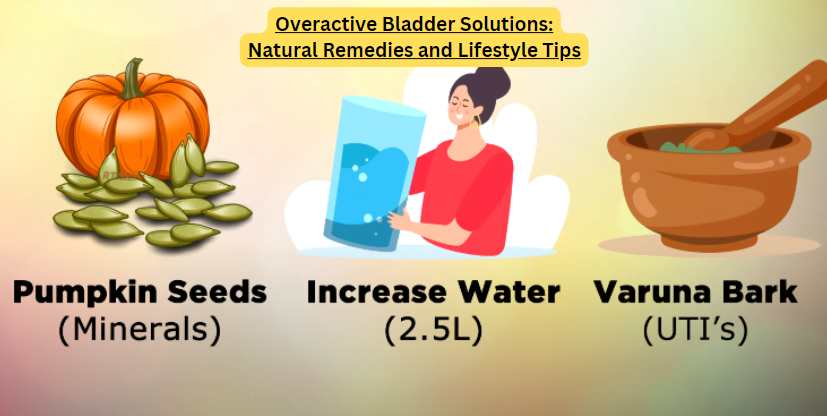Introduction:
Dealing with overactive bladder problems can be a disruptive and distressing challenge, affecting one’s daily life with persistent urges, urinary leakage, and interrupted sleep.
Understanding the intricacies of bladder function is vital, as disruptions in the signaling between a full bladder and the brain can lead to these troublesome symptoms.
This article explores the multifaceted aspects of overactive bladder issues, delving into potential causes ranging from prostate enlargement to dietary factors like excess sugar.
Amidst these challenges, natural remedies emerge, each offering unique benefits for managing and alleviating symptoms.
From the role of Vitamin B1 in regulating bladder muscles to the ancient wisdom of Varuna bark powder, the article provides a comprehensive guide to those seeking effective solutions.
Read on to discover the significance of pumpkin seeds, the impact of water intake, and the role of apple cider vinegar and a low-carb diet in restoring bladder health.
As we delve into these remedies, remember that personalized advice from healthcare professionals is paramount.








